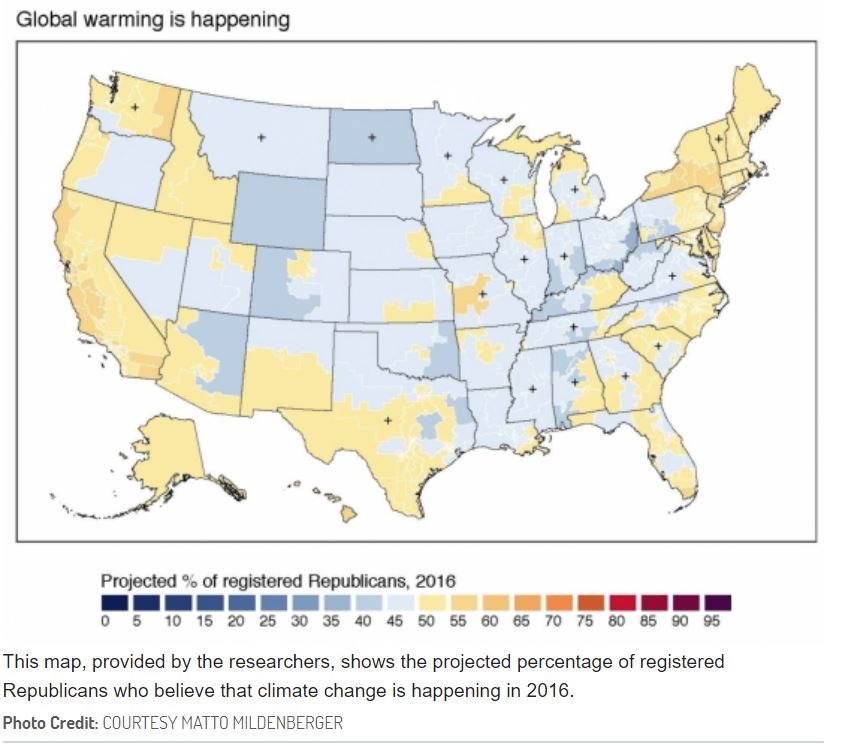Climate change is not a partisan issue, and a UC Santa Barbara researcher has the data to prove it.
 Matto Mildenberger, an assistant professor of political science, led a new study — published in the journal Climatic Change — that finds substantial differences in the climate change views of both Republicans and Democrats across different states and congressional districts. “While subsets of the Republican voting public do not support climate policies and hold views consistent with party elite, Republican climate and energy opinions are more varied than might be presumed from political discourse,” said Mildenberger, who conducted the research with colleagues at Yale University and Utah State University. “Similarly, the results emphasize consistent support among Democrats for climate and energy policies, despite variation in belief intensity.”
Matto Mildenberger, an assistant professor of political science, led a new study — published in the journal Climatic Change — that finds substantial differences in the climate change views of both Republicans and Democrats across different states and congressional districts. “While subsets of the Republican voting public do not support climate policies and hold views consistent with party elite, Republican climate and energy opinions are more varied than might be presumed from political discourse,” said Mildenberger, who conducted the research with colleagues at Yale University and Utah State University. “Similarly, the results emphasize consistent support among Democrats for climate and energy policies, despite variation in belief intensity.”To carry out the study, the team combined information from state voter files with climate and energy opinions collected online between 2008 and 2016 by the Yale Program on Climate Change Communication and the George Mason Center for Climate Change Communication. The data allowed them to estimate the geographic distribution of Republican and Democratic climate and energy opinions across the country. As it turns out, the researchers discovered, substantial disagreement on climate exists between Republican elites and members of their party. For example, many Republicans in Congress doubt whether climate change is happening, yet most Republican party members in different states think that global warming is indeed underway. Those Republicans living in New York, Delaware and Alaska are particularly likely to do so. But only a quarter of Republicans in most states believe climate change is both happening and human-caused.
According to the study, the differences in climate opinions also translate into party members’ policy preferences. There is, for instance, majority Republican support for Renewable Portfolio Standard (RPS) policies in 111 congressional districts currently held by Republican members of Congress. Similarly, a majority of Republicans in every state but Wyoming support regulating carbon dioxide as a pollutant. And in particular, relative to the average national party member, Republicans in Southern Florida strongly support regulating carbon pollution. The geography of partisan climate opinions in the U.S. highlighted in their study, the researchers say, should inform decision makers, educators and communicators working at sub-national scales. Co-author Peter Howe, of Utah State University, said that an understanding of how support for climate change and energy reforms differs at local scales is especially important given the current policymaking context. Despite the Trump administration’s withdrawal from the Paris Climate Agreement in mid-2017, state and local governments continue to act as critical sites of climate and energy policymaking in the U.S. “Accelerating state and local policymaking highlights the need for public opinion and policy preference data at these subnational spatial scales,” noted Yale University co-author Jennifer Marlon.
By ???Shelly Leachman
The UC Santa Barbara Current
The UC Santa Barbara Current
November 30, 2017 - 9:48am





